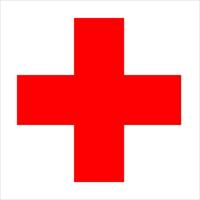Chad: War surgeons give vital care in eastern Chad

A recent outbreak of fierce fighting between the Chadian armed forces and armed opposition groups in the eastern part of the country has taken a heavy toll in dead and wounded, mostly among those who took part in the hostilities
The International Committee of the Red Cross (ICRC) took immediate action by sending one surgical team already in the country to Abéché, the regional capital, and flying a second team from Geneva to N’Djamena’s La Liberté Hospital, where it has been working since 2 December.
Several hundred people wounded in the fighting have been evacuated to N’Djamena since the latest outbreak of hostilities just over a fortnight ago. Over 50 of the most severely injured have been treated by ICRC personnel. Others have received care in facilities such as the central military hospital in N’Djamena, which the ICRC has been supplying with medicines and other items. ICRC staff have also taken several wounded people from areas where fighting occurred to Abéché.
“Our main aim is to ensure that the wounded receive proper treatment quickly,” said Thomas Merkelbach, head of the ICRC delegation in N’Djamena. “Under international humanitarian law, which is applicable to the non-international armed conflict in Chad, wounded persons no longer participating in combat are entitled to prompt medical treatment. It makes no difference which side they were fighting on. Our staff have been treating urgent cases from all sides.”
The ICRC distributed nine dressing kits (each kit is sufficient to treat 60 seriously wounded individuals) to Abéché hospitals, in addition to such items as intravenous equipment, antibiotics, injection materials, blankets, jerrycans and cleaning products. It also supplied the three hospitals in N’Djamena with eight dressing kits, disinfectant, injection materials, intravenous equipment, painkillers and X-ray film.
Last week ICRC delegates reached the area where the heaviest fighting had taken place and found that explosive remnants of war were the main cause for concern. A specialist in such devices, which may turn out to be the overriding problem for the civilian population once the fighting is over, is examining the area at present. Last year many individuals, including children, were killed by explosive remnants of war in the area.
The ICRC has been working in Chad since 1978. It currently has over 200 staff in the country, including more than 30 expatriates.
 Back and Next - Back and Next
Back and Next - Back and Next See Also - See Also
See Also - See Also